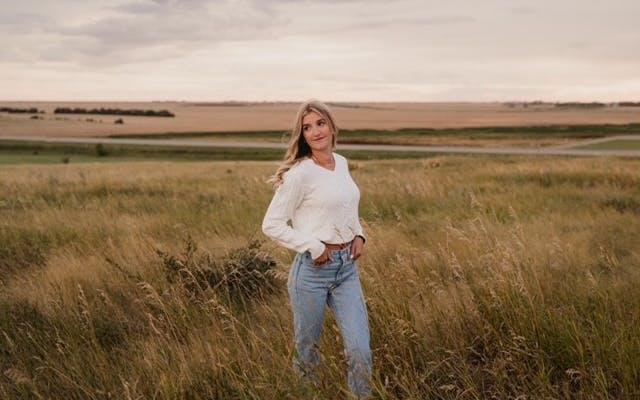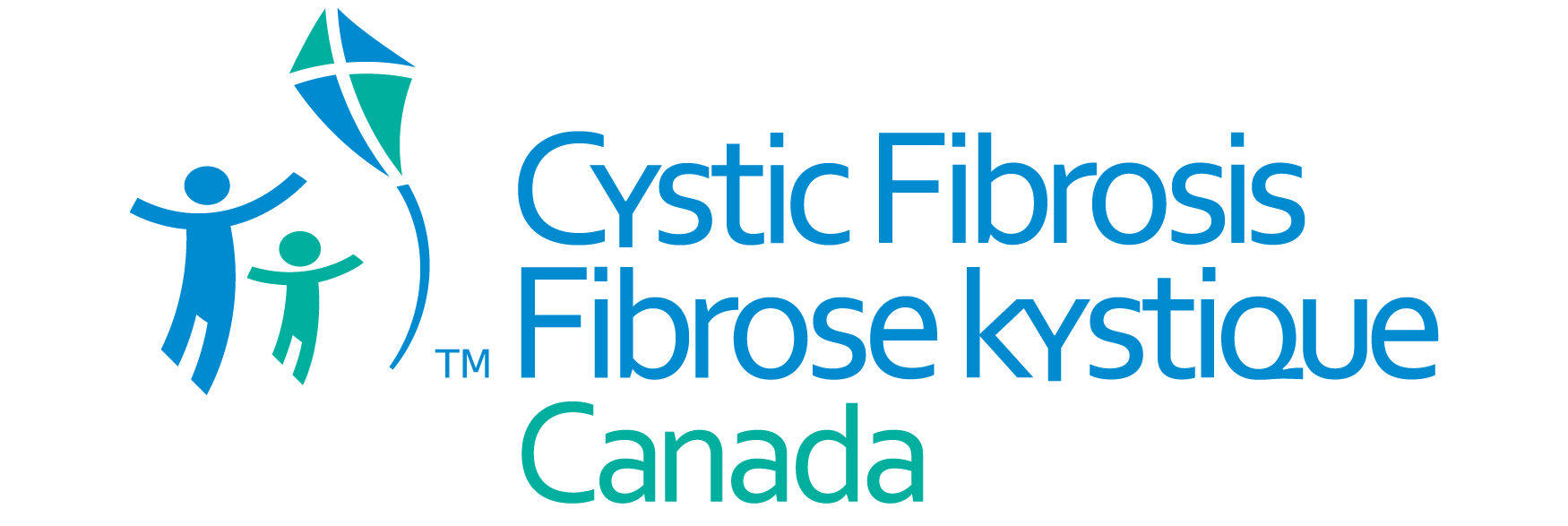“I just want to live a full life:” Teresa Weger on Rare Mutations, Resilience, and the Push for Progress
July 31, 2025Share this:

For Teresa Weger, advocacy isn’t a side project – it’s a part of who she is. Diagnosed with cystic fibrosis (CF) at two and a half years old, the now 20-year-old from Weyburn, Saskatchewan, has grown up with a deep understanding of both the visible and invisible weight that CF can carry.
“My family immediately got involved with CF Canada through fundraising and advocacy after I was diagnosed with cystic fibrosis,” Teresa shares, “It’s always been a part of my life. We previously ran a butter tart bake, a community night out, and now I help run the social media for the Regina location of the Walk to Make Cystic Fibrosis History.”
A third-year Business Administration student at the University of Regina, Teresa continues to give back and is currently spending her summer as part of the Community Engagement team at Cystic Fibrosis Canada.
But while her calendar might look typical for someone her age, beneath is a reality that's harder to see: Teresa lives with a rare CF mutation that doesn't qualify her for life-changing modulator therapies like Trikafta. Over the past few years, Trikafta has transformed the vast majority of people with CF. But for those like Teresa, who live with rare mutations, the experience is different.
When Teresa was diagnosed, her mutation was so rare it wasn’t in the CF database.
“My dad isn't even a carrier. Somehow, when his genes connected with my mom’s, it mutated into CF,” she explains. “Because of that, I don’t qualify for any of the current modulator treatments available.”
That rarity has shaped her day-to-day life and her long-term plans. Teresa admits that her health influences every major decision, from choosing a university program to imagining a future family.
“You kind of grow up faster. There's always this feeling like you have to fit everything in because you just don't know what the future holds,” she explains. “I didn't want to go into something that would take seven years of schooling - I want to get started with my life now.”
Living with CF isn't just physically demanding - it comes with an emotional toll, especially when access to treatment is out of reach.
“It can feel isolating,” Teresa says. “There's this whole new generation of people with CF who are getting a second chance at life. And you’re watching from the outside - still living with the same disease, but on a completely different path.”
Still, she remains hopeful.
“If a breakthrough like Trikafta can happen for the majority, then I believe something can happen for people like me too,” she says. “And now that so many are stabilized, it means more time and funding can go toward finding ways to treat rare CF mutations.”
Despite her deep involvement in advocacy, Teresa says she tries to keep her personal life separate from CF.“ I don't open up to friends too much about it,” she admits. “I don't want to put that burden on them. It's why programs like CF Canada’s Peer Connect are so valuable - to have a space where you don’t feel like the only one.”
The “invisibility” of CF – especially in someone as active and driven as Teresa – can make it hard for others to understand what she’s living with. But that changed in one single moment when she began to feel the physical toll of her disease during her senior year of high school.
“I had to leave the stage in the middle of a dance solo because I physically couldn't finish,” she recalls. “That moment was hard - it was the first time my body couldn't keep up, and other people saw it too.”
Since then, Teresa says she’s lacked confidence and has struggled to return to dance, worried that another incident might make her feel alienated again. Despite her fears, Teresa continues to teach dance and remains deeply committed to making life better for others with CF. When asked what people can do, she has a clear message: “Don’t stop now.”
“Just because a treatment exists for many doesn't mean we ease up. If anything, we need to push harder,” she says. “We're closer than ever - but now we're facing the most complex group to treat. We can't let people like me get left behind.”
For Teresa – and the thousands of Canadians still waiting for their breakthrough – the work isn’t over. But the hope and the will to keep pushing are stronger than ever.
“Time matters. This is a disease with a clock. We want to make sure that the next breakthroughs come while people are still healthy enough to benefit from them.”
---
Support research for rare CF mutations by donating to Cystic Fibrosis Canada. Together, we can make sure no one is left behind.
